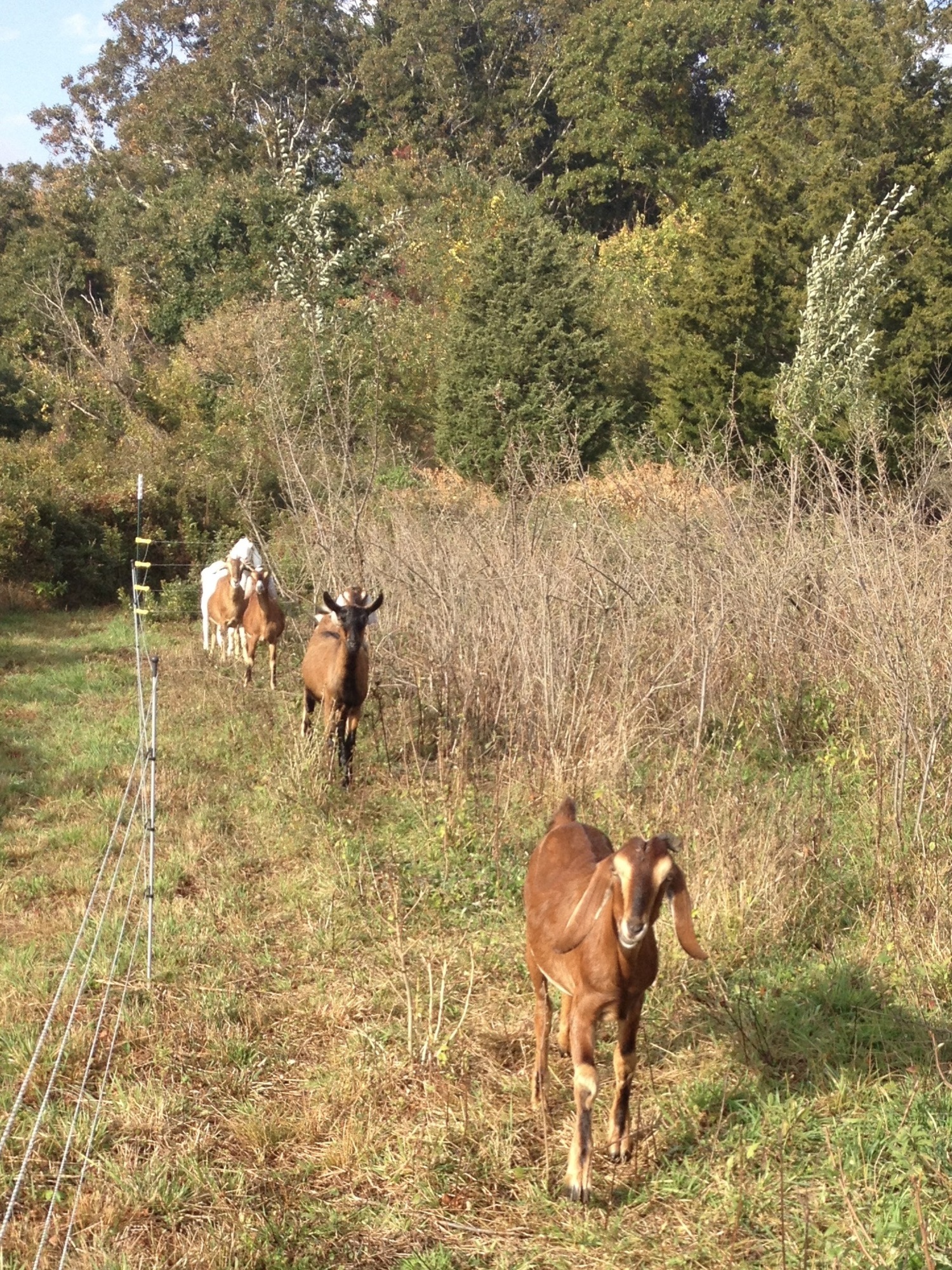
The goats are going to eat Montauk’s weeds.
About a decade ago, the Friends of the Long Pond Greenbelt used a hired pack of goats to rid a pasture of invasive weeds. The goats, apparently, have a taste for many of the most common invasive plant species that can find roots and soon take over swaths of woods, but turn their noses up at most native species.
This week, engineers working for East Hampton Town and the Concerned Citizens of Montauk, unveiled a plan to use goats as part of the effort to restore the coastal shrublands along the southern edge of Old Montauk Highway just west of downtown Montauk.
The land, known as the Benson Preserve, is owned by the town and stretches west from South Eton Street for nearly a mile, sloping from the old highway down to the ocean beaches.
Rusty Schmidt, a landscape ecologist for the engineering company Nelson Pope Voorhis, told the East Hampton Town Board on Tuesday, July 18, that a survey that his company conducted in 2021 revealed that about 16 acres of the preserve, the portion that runs along the uplands that bound Old Montauk Highway, is dominated by invasive species of privet, honeysuckle and rosa multiflora. Those plants stand 12 to 15 feet high, obscuring views across the preserve to the ocean, and are choking out other plant species.
The lower portions of the property, closer to the briney ocean air, have far fewer invasives, and Schmidt told the town that much of the oceanfront of the property needs no attention.
Along the highway, the plan Nelson Pope Voorhis has concocted would be to mechanically remove those invasives that are easy to eradicate simply by ripping them out of the ground — like privet.
But other species, especially creeping vines like multiflora rose, are more stubborn and harder to just dig out.
That’s where the goats will come in.
“The sections on steep slopes are predominantly vines — they don’t come out very easily by pulling or by other human interactions,” Schmidt said. “So we’re going to propose a different technique.”
In the plan that CCOM hopes to begin this winter, as much of the invasives will be removed mechanically as possible. A low fence will be erected around four areas, about 8 acres in all, where the most problematic plants are, and in the spring, the goats will move in.
“Their favorite foods are poison ivy, greenbrier, multiflora rose and Japanese honeysuckle — which are the vines — and Japanese knotweed,” the engineer said. “So they’re going to go after those plants, and they don’t really eat the native grasses.
The plans call for two or three goats per acre. Shelters will have to be erected within the enclosure areas — goats don’t like rain, Schmidt said — and CCOM staff and volunteers will have to monitor and care for the goats as they graze.
Goats have been used for controlling invasives for years. New York City used them to clear an area of Riverside Park just this past spring.
Councilwoman Kathee Burke-Gonzalez said that local farmers have talked for years about employing goats to control invasives and that solar farm operators often use them to keep plants from growing and obscuring the solar panels.
When the humans and goats have rid the hillside of invasive species, the land will be reseeded with native vegetation. Then a perpetual maintenance effort will commence to keep invasives in check in the future.
The project is expected to take 10 years to complete, and cost some $865,000. An individual has already pledged $200,000 toward the effort and CCOM hopes to raise another $400,000 from private donations. A Suffolk County habitat restoration grant for $260,000 and other grants that CCOM will apply for are expected to cover the rest of the costs.
“We are completely committed to making sure that this project is successful,” said Jaime Leduc, director of environmental advocacy for CCOM.
The town is not being asked to contribute financially, only to approve the project going forward.
“There is a win, win, win — a third set of benefits that accrue to the community, through improved vistas,” town Planning Director Jeremy Samuelson said. “So, as we look at a restored landscape and appreciate that it has higher value as habitat for both flora and fauna, we see that the community benefits, as well, in terms of improved vistas and potentially even enhanced property values.”
“I wonder if there is a civil service title for goat herder,” Supervisor Peter Van Scoyoc joked.